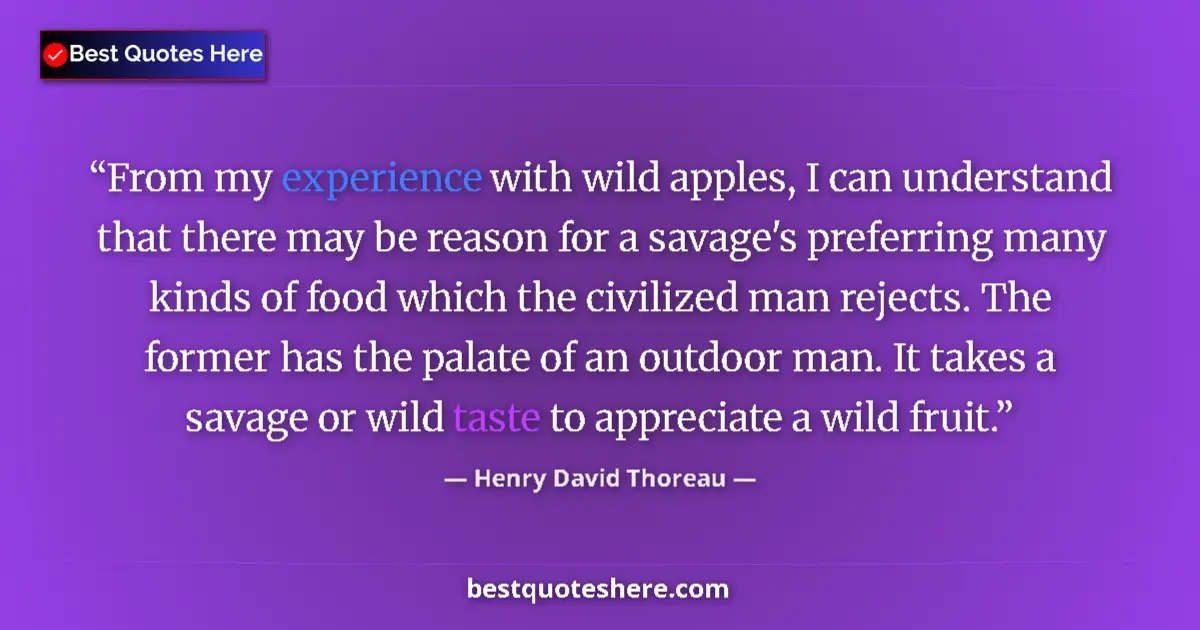"From my experience with wild apples, I..." - Quote by Henry David Thoreau
From my experience with wild apples, I can understand that there may be reason for a savage's preferring many kinds of food which the civilized man rejects. The former has the palate of an outdoor man. It takes a savage or wild taste to appreciate a wild fruit.
An image illustrating the quote: "From my experience with wild apples, I can understand that there may be reason f..."
More by Henry David Thoreau More on Nature “And now you ask in your heart, ‘How shall we distinguish that which is good in pleasure from that which is not good?’ Go to your fields and your gardens, and you shall learn that it is the pleasure of the bee to gather honey of the flower, But it is also the pleasure of the flower to yield its honey to the bee. For to the bee a flower is a fountain of life, And to the flower a bee is a messenger of love, And to both, bee and flower, the giving and the receiving of pleasure is a need and an ecstasy. * People of Orphalese, be in your pleasures like the flowers and the bees.” “My only fear is doing something contrary to human nature - the wrong thing, the wrong way, or at the wrong time.” “There's an interdependence between flowers and bees. Where there are no flowers there are no bees, and where there are no bees, there are no flowers. They are really one organism. And so in the same way, everything in nature depends on everything else.” More on Taste “Personal size and mental sorrow have certainly no necessary proportions. A large bulky figure has a good a right to be in deep affliction, as the most graceful set of limbs in the world. But, fair or not fair, there are unbecoming conjunctions, which reason will pa tronize in vain,--which taste cannot tolerate,--which ridicule will seize.” “There is nothing more fearful than imagination without taste.[Ger., Es ist nichts furchterlicher als Einbildungskraft ohne Geschmack.]” — Johann Wolfgang von Goethe “But where only a free play of our presentational powers is to be sustained, as in the case of pleasure gardens, room decoration, all sorts of useful utensils, and so on, any regularity that has an air of constraint is [to be] avoided as much as possible. That is why the English taste in gardens, or the baroque taste in furniture, carries the imagination's freedom very far, even to the verge of the grotesque, because it is precisely this divorce from any constraint of a rule that the case is posited where taste can show its greatest perfection in designs made by the imagination.”
